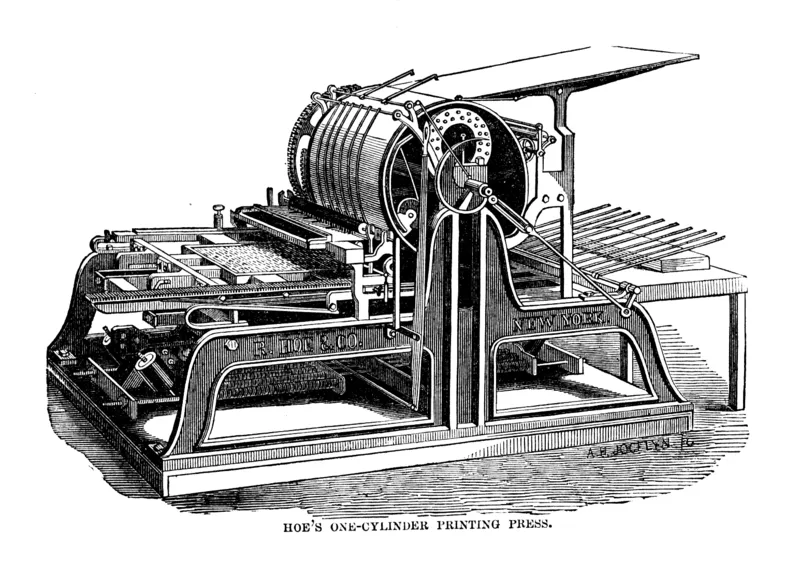How can unions get the most out of the small-town media?

EDITOR'S NOTE: This is the second in our two-part series on unions and the media. Before I became a union-card-carrying community college history teacher, I was a daily newspaper reporter. I am still a freelance journalist. I am glad to help local unions get better coverage in local media. Email me at bcraig8960@gmail.com.
By BERRY CRAIG
AFT Local 9005
What are some ways you can you help your union get better coverage in your hometown media?
Introduce yourself
First, try getting to know local newspaper, TV, and radio reporters. Introduce yourself with a phone call. Follow up with an email that includes your photo. It’s good to put a face with a message. Better yet, drop by for a visit, but after deadlines.
The anti-union newspaper publisher or station owner may think we have horns. But reporters cover the stories. Show them we don’t.
Let them know that we do what they do: work for a boss. Let them know that we want what they want – a good living for ourselves and for our families.
Our kids go to school with their kids. They play on the same ball team or march in the band together. In other words, find the common ground.
Start spreading the news
Second, make news yourself. When your union local elects new officers, tell the media. Send an email and follow it up with a friendly “Just checking to make sure you got my email” phone call.
A union election probably won’t make the front page. But chances are it will get printed somewhere in the paper and might get a mention on the TV or radio news.
Small town papers are always hungry for local news and photos. So send a photo of your smiling new president and executive board, too. Emailed photos work best. But make sure the image is of high enough resolution to look good in the paper. If you aren’t sure, ask the folks at the newspaper what resolution they need.
Clue the media in on how your union helps the community
Unions can be newsmakers in other ways. For example, in Paducah, Ky., building trades union volunteers pitched in to help restore an old minor league baseball park that’s now a registered historical landmark. That project made the news.
When the city decided to decorate its Ohio River floodwall with scenes of local history, the Paducah-based Western Kentucky AFL-CIO Area Council raised money to pay for a union mural. The artwork depicts a Labor Day parade. Faces of local union activists are recognizable among the marchers. The mural made the news, too.
Paducah area unions donate thousands of dollars annually to worthy causes. Add up how much your union--or central labor council--raises and share the total with the local media.
Feature stories
Take it from this old feature writer, union members--active and retired--make great feature stories. Don’t be hesitant to tell reporters about them.
For example, many union members are genuine war heroes, though like most heroes, they don’t brag on themselves. So you brag on them to the local paper or TV or radio station.
Stories about union veterans are especially timely around Memorial Day, Veterans Day and Independence Day.
When I was a reporter more than 40 years ago, I interviewed several World War II veterans--a dozen formed the nucleus of my book Kentuckians and Pearl Harbor. But one of the most memorable vets I interviewed was in the Army Air Force: Bill Hack, a retired Paducah Ironworker, won a Distinguished Flying Cross and a Purple Heart as a bomber crewman. Every story about him has named his local union, Ironworkers 782.
Union members make good copy in other ways, too. They might be multiple-gallon blood donors, for example. Blood drives get good coverage, in small papers especially. If you’re a mega-donor and a reporter asks you where you work, don’t just say where. Tell the journalist the name of your union local.
But no matter what the story is about, let the reporter know you belong to the union. Chances are good that if you bring it up, the reporter will put it in the story.
Take advantage of local cable TV
Local public access cable TV is a great place to showcase your union. I hosted a regular show called "The Union Label" on Paducah 2 television. It’s a talk show. My guests included local, state and national union officials and rank-and-file union members – including Jeff Wiggins, our state AFL-CIO secretary-treasurer. Daniel Hurt, a former student of mine and an honorary delegate to the Paducah CLC hosts "River City Presents." He's always looking for union folks to have on his show. His email is dhurt1206@gmail.com
Anyway, contact the folks who operate your local public access channel and see if you can get in front of the camera. Suggest they start a show about unions. Volunteer to host it.
In short, don’t hide your light under a bushel. If you’re a local union official, don’t be hesitant to pitch stories about your union to local papers and to TV and radio stations. They won’t run all of them, of course. But the more stories you pitch, the better your odds of getting something in print or on camera.
A footnote: Also feel free to send me your ideas about how you think unions can get better press. Tell me ways you’re telling your communities about how your unions are being good neighbors. If I get enough responses, I’ll share them in another posting. My email address is bcraig8960@gmail.com